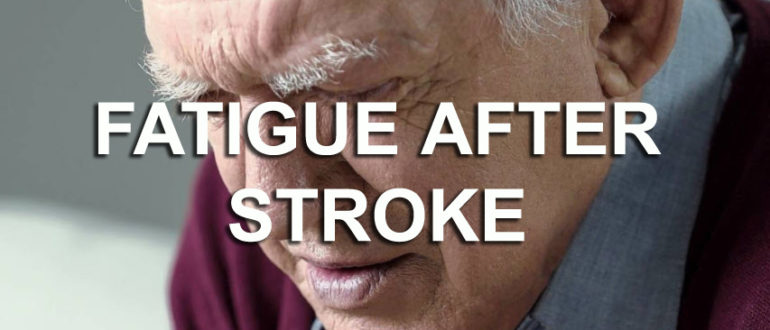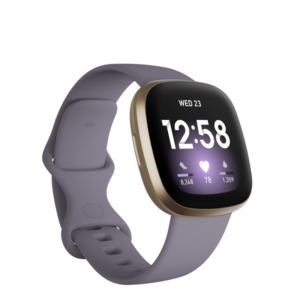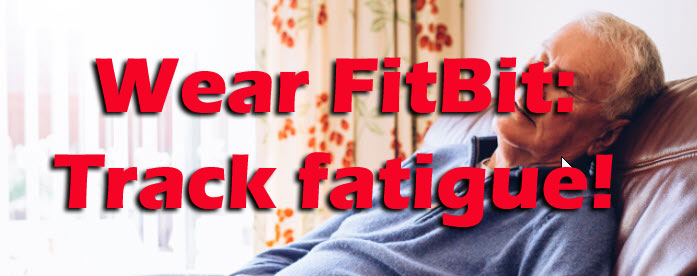 Up to 70% of survivors experience fatigue that includes overwhelming physical and/or mental tiredness or exhaustion. And 50% find tiredness to be their main problem.
Up to 70% of survivors experience fatigue that includes overwhelming physical and/or mental tiredness or exhaustion. And 50% find tiredness to be their main problem.
And it’s not like typical tiredness. It doesn’t always improve with rest and isn’t necessarily related to recent activity.
Experiencing fatigue after stroke can have a major impact on your ability to self-manage: impacting on your quality of life by making everyday tasks feel overwhelming and unachievable, or just plain exhausting!
It’s easy to understand why fatigue has been identified as such a major barrier for survivors when participating in daily and social activities, employment, and physical activity. That’s why, in the posts in the ARNI blog, it’s quite a dominant theme. So many survivors ask for help (some clarity and answers, at least), because for many, it is one of their most debilitating problems. Not least because there is currently no clinically accepted method for diagnosing fatigue.

Clinical guidelines suggest survivors are taught about triggers and strategies in order to manage their fatigue, but evidence around treatments is still unclear. As far as a specific medication that can ameliorate or improve fatigue, Modafinil can be effective for some, but anti-depressants are not evidenced to be effective.
Managing the condition by learning and using cognitive behavioural therapy (CBT) is often advised by GPs as an option.
Please: if you’re fatigued, be aware that it isn’t your fault. You’re not being lazy!
Try this as a battle plan. Start, and keep up some form of record (a diary) of your day-to-day life. You’ll be able to evaluate it and find, over time, that you can look back and be very encouraged at your improvements. You’ll have better and worse days. This is standard. Try tactics such as getting some gold star stickers to put in your diary to mark the successes you have. Try to pace yourself before, during and after any activity. Learn to ‘listen’ to your body and your reactions to activities as well as to your rest periods. In this sense, it can be no different to the kind of ‘training diary’ that many exercise trainees rely on.
Clinicians currently try to capture peoples experience of fatigue by these too. Or via fatigue questionnaires. This approach depends on people’s ability to recall their experiences or to summarise their fatigue. But for many people, fatigue changes throughout the day and this makes it difficult to summarise fatigue experiences or to accurately recall them.
 The University of Southampton has started running a research study which builds on previous work where a smartphone app was developed to capture fatigue via a Fit-Bit watch as it happens in real-time.
The University of Southampton has started running a research study which builds on previous work where a smartphone app was developed to capture fatigue via a Fit-Bit watch as it happens in real-time.
Would YOU like to be involved?!
To take part you must be:
![]() 18 years or older.
18 years or older.
![]() have fatigue because of a brain injury such as stroke (but please also apply if you have had any other ABI).
have fatigue because of a brain injury such as stroke (but please also apply if you have had any other ABI).
![]() be able to give informed consent to take part in the study.
be able to give informed consent to take part in the study.
![]() able to wear a FitBit for 6 days.
able to wear a FitBit for 6 days.
![]() be able to use a smartphone.
be able to use a smartphone.
![]() able to participate in an online interview about fatigue/activity afterwards.
able to participate in an online interview about fatigue/activity afterwards.
You don’t need a FitBit of your own: the Department has a number available for study-loan.
 The aims of this are to:
The aims of this are to:
- Investigate how useful tracking fatigue (in real-time) and daily summaries of their activity and fatigue are to people with brain injury.
- Investigate how easy the daily summaries are to use.
So, do get involved in this important and interesting study if you feel you meet the criteria above!
The research also aims to investigate occupational therapist’s perception of the usability and usefulness of summarised daily data in understanding fatigue and guiding fatigue interventions. This means that, if you’d like to take part, the research team would need your permission to show your (anonymised) daily fatigue summaries.
For further information, please contact Leisle Ezekiel, lecturer, and researcher in the School of Health Sciences at the University of Southampton on L.Ezekiel@soton.ac.uk






4 Comments
I had a stroke 4 years ago next month. Initially I made good progress working with an arnie trainer. However I had a bad reaction to a covid jab and have never really got back to where I was before this. I am very slow to do anything and get fatigued easily. Am prepared to try anything tbh.
My husband cannot use a smart phone . I can and do !! He had Cerebral Haemorrhage leading to right side paralysis Feb 2022 . He has recovered very well although has problems with aphasia at different periods throughout the day . I worry about him dozing a lot and he says he’s always tired . Roberta Unsworth. Spouse
Husband can’t use a smartphone but can give consent and wear the device. would they allow carer assistance?
i have had a stroke at 74 years , have some walking difficulties and difficulty with my smart phone that i had not experienced before. still under hospital for monitoring amongst other things